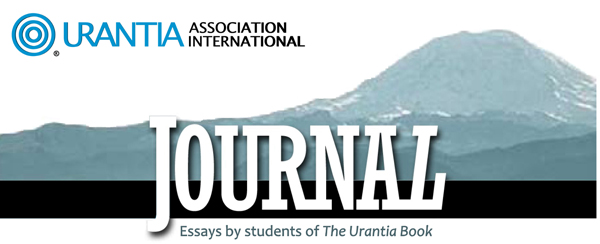Journal – November 2021
 | | Image by Heung Soon |
|
In This Issue
|
Welcome to the November 2021 edition of the Urantia Association's Journal, a publication dedicated to the thoughts, observations, and experiences of Urantia Book students from around the world.
Our first article, Safe and True by David Kulieke, is a tribute to his life as an educator and a scholar. As presented here, this article is an edited version of the original publication (Urantia Foundation), one that truly deserves a wider audience. David was a passionate advocate of improving education and critical thinking skills. While teaching English literature and writing, he often introduced his students to concepts and ideals expressed in The Urantia Book, giving us some valuable lessons for spreading the teachings without necessarily using the book.
The second article, A Urantian in Second Life by Jean Ascher, also demonstrates how the teachings of the book can be dispersed in an active but casual manner, although in an entirely different context. Jean is an artist and a performer who uses every opportunity to integrate Urantia Book philosophy with his (virtual) circus performances.
The third article, Application of Scientific Thinking to Cosmology in The Urantia Book by William Wentworth, is a must-read for anyone interested in the unification of science and religion, particularly as religion is portrayed in the book. William addresses the scientific community's rejection of teleological arguments—that the universe has purpose and design. As he says, "…reality is a far more complicated phenomenon than that assumed by material science."
Our final article, A Cosmic Vision by Claude Flibotte, is also cosmological in scope. Claude does a thorough job of summarizing the work, function, and circuits of the Universe Power Directors, all the way from Paradise to the inhabited planets. He brings to mind that the Power Directors are servants of God in the material-energy realms and that, "…pure energy of Deity transmutes into many forms and manifestations, not all of which are recognized by us."
We hope you are inspired by the many different ways in which the philosophy, religion, and cosmology of The Urantia Book can be shared with people from all walks of life.
|
|
David Kulieke, USA 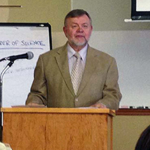 (Editor's Note: David Kulieke sadly passed away recently and we send our sincere condolences to his wife, family and friends. David was a long-time reader, educator and scholar and will be sorely missed in the Urantia Book reader community. This article is an edited version of a presentation he gave at The Urantia Book Seminar on Education, March 2017.)
(Editor's Note: David Kulieke sadly passed away recently and we send our sincere condolences to his wife, family and friends. David was a long-time reader, educator and scholar and will be sorely missed in the Urantia Book reader community. This article is an edited version of a presentation he gave at The Urantia Book Seminar on Education, March 2017.)
The fifth epochal revelation has been presented before its time. Even if its believers were more successful in finding new readers, only a small fraction of the world's population is ready to read The Urantia Book. One might validly ask whether, even at the height of its influence many years from now, a large portion of humanity will actively read the book.
Yet epochal revelations are integral to the slow progress of Urantia towards light and life, especially given all of the missteps this planet has taken. If The Urantia Book is to be of significant influence in bringing light to Urantia, both in its own regard and as a vehicle to revivify aspects of the fourth revelation, its followers must not only bring the book to those who are ready, they must find ways to convey its teachings to the rest of the world.
It takes transformed individuals to transform the world. As The Urantia Book puts it, "The social characteristics of a true religion consist in the fact that it invariably seeks to convert the individual and to transform the world" [160:5.5].
The book also suggests that education is one key to transforming those individuals. We are told, "Culture presupposes quality of mind; culture cannot be enhanced unless mind is elevated" [50:6.4].
As a teacher of writing and literature, my classes and tutoring have provided many opportunities to share Urantia Book concepts with my students. I can assign writing topics, especially those from literature, that create the opportunities for insight and discussion. Writing also is a vehicle through which to elevate critical thinking skills. Great literature abounds with themes that are taught in The Urantia Book from the concept of the role of affliction to growth through sincere decisions.
During the latter portions of my life on Urantia, I have become passionate about the statement in the book that, "Education of public opinion is the only safe and true method of accelerating civilization…" [71.2.7]. This is an eloquent expression of transforming individuals to transform society, and I am eager to know what I can do about it.
My experience as an educator includes three decades in the classroom teaching English, literature, and writing, sixteen summers teaching gifted high school students literary analysis, and individual music lessons since I was in high school. Since I left the classroom, I have tutored thousands of lessons. I teach students from China literature and writing via Zoom, as well as through a class in China last August, and I have been active in education regarding The Urantia Book.
While I can recount many experiences of sharing ideas from the book within my teaching, I also seek ways to have influence in my small way on a more global level.
Spreading the Teachings Through My Students
At the core of this seminar is learning what we can from each other regarding principles of spreading the teachings of The Urantia Book without necessarily using the book. Being a teacher of literature, writing, and thinking, has provided me a favorable platform.
Teaching writing is a rich resource. One approach concerns using the topics of assigned essays, such as: "Explain how education contributes to the goal of living a fully realized life," or "What values must one seek to live in order to be human?" Many themes emerging from literature also lend themselves to explorations of fact, meaning, and value.
Writing is also an opportunity to teach thinking, as should be any class. My working, somewhat simplistic definition of intelligence, is "the ability to perceive true relationships among facts, ideas, and systems of ideas." When writing an essay, one must understand emphasis, distinguishing among the levels of importance of thesis, paragraph topic, and supporting details; coherence, order and flow; relevance, whether items relate to a point; logic, the degree that an argument makes sense; and many other critical thinking skills. These enhanced perceptions help a student along the path towards truth:
There are just three elements in universal reality: fact, idea, and relation. The religious consciousness identifies these realities as science, philosophy, and truth. Philosophy would be inclined to view these activities as reason, wisdom, and faith—physical reality, intellectual reality, and spiritual reality. [Paper 196:3.2, page 2094.1]
Another area of the English class, literature, is a seemingly endless resource for better understanding the concepts of The Urantia Book. This should not surprise us, for great and good literature is written by some of the best observers and philosophers of our civilization, and they are also men and women who are able to illustrate the truths they have seen in narrative or poetic form.
We accept irony through a device called metaphor. And through that we grow and become deeper human beings. ― Haruki Murakami
Perhaps the most profound examples of these truths can be found in tragedy. Aristotle said that, “The saddest of all tragedies [is] the wasted life.” He said that we emerge from watching a tragedy better through understanding the possibilities of life and through our emotional experience of a catharsis.
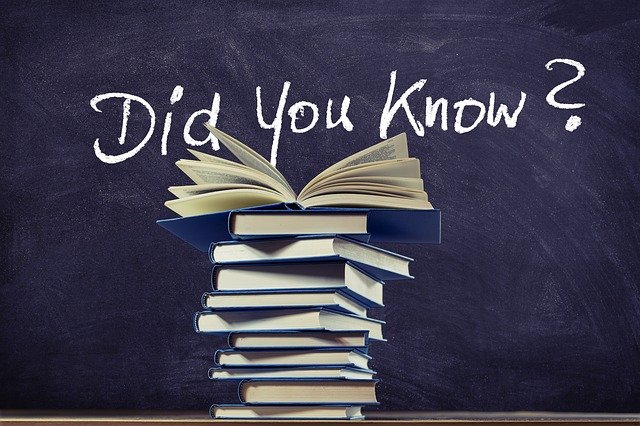 In Shakespeare's tragedy Macbeth, King Duncan rewards Macbeth for his loyalty and bravery. But shortly thereafter, the king names his son, not Macbeth, as his successor-to-be. Macbeth's ambition causes him to contemplate removing the king from his path; together with his equally ambitious wife, they plan to murder Duncan when he visits their castle. Shortly before the foul deed, Macbeth has second thoughts and talks himself out of the murder. In his soliloquy, he names several reasons why he should not do it: Duncan is his relative, his guest, he has bestowed honor and trust upon Macbeth, he is a good king, he is a good man, and, moreover, killing him is simply wrong. But Lady Macbeth enters to show her husband her contempt for his irresolution. He changes his mind again, and, using the phallic symbol of a manhood-strengthening floating dagger to lead him to the king, he begins a spree of carnage. As the play continues, Macbeth becomes figuratively more monstrous and less human, the theme of what makes a man being explored throughout the play.
In Shakespeare's tragedy Macbeth, King Duncan rewards Macbeth for his loyalty and bravery. But shortly thereafter, the king names his son, not Macbeth, as his successor-to-be. Macbeth's ambition causes him to contemplate removing the king from his path; together with his equally ambitious wife, they plan to murder Duncan when he visits their castle. Shortly before the foul deed, Macbeth has second thoughts and talks himself out of the murder. In his soliloquy, he names several reasons why he should not do it: Duncan is his relative, his guest, he has bestowed honor and trust upon Macbeth, he is a good king, he is a good man, and, moreover, killing him is simply wrong. But Lady Macbeth enters to show her husband her contempt for his irresolution. He changes his mind again, and, using the phallic symbol of a manhood-strengthening floating dagger to lead him to the king, he begins a spree of carnage. As the play continues, Macbeth becomes figuratively more monstrous and less human, the theme of what makes a man being explored throughout the play.
Another great theme of the play is the difficulty one has of changing course once he has headed down a wayward path. The human tendency to struggle to reverse a trend or separate among a set of beliefs or values is called cognitive dissonance, a theory of the psychologist, Leon Festinger.
Macbeth states, "I am in blood/Stepp'd in so far that, should I wade no more,/
Returning were as tedious as go o'er" (Act III, Scene IV).
The Urantia Book deals with the same theme when the apostle Peter is unable to refrain from denying Jesus:
Having taken the first step along the path of compromise and least resistance, there was nothing apparent to Peter but to go on with the course of conduct decided upon. It requires a great and noble character, having started out wrong, to turn about and go right. All too often one's own mind tends to justify continuance in the path of error when once it is entered upon. [Paper 184:2.12, page 1981.6]
Besides demonstrating cognitive dissonance, we can also examine the problem of deciding to do something against one's best values, and the need to develop the habit of making and following through with good decisions.
The most powerful theme emerging from Macbeth's decisions occurs as he unravels during the course of the story and suffers an ongoing disintegration of personality. When he so clearly outlines all the reasons that he should not kill Duncan but then does so anyway, his personality begins to lose its coherence: his actions, will, and soul cannot function together, his spiritual progress is reversed. The Urantia Book states:
A human mind, built up solely out of the consciousness of physical sensations, could never attain spiritual levels; this kind of material mind would be utterly lacking in a sense of moral values and would be without a guiding sense of spiritual dominance which is so essential to achieving harmonious personality unity in time, and which is inseparable from personality survival in eternity. [Paper 133:7.10, page 1480.2]
In class, we emphasize the concept of integrity. Integrity is generally used to mean high values, honesty, or morality. It means this because it is derived from the word "integral," or oneness. This oneness reflects the personality integration that comes when one's will drives one's actions in keeping with one's best sense of the Father's will. In class, we discuss how Macbeth has suffered personality disintegration, another way of saying he has figuratively lost his soul. And such an action is in keeping with one losing the status of being human in a spiritual sense.
In contrast with the dark yet illuminating themes in Macbeth, the poem "Ulysses," by Alfred, Lord Tennyson, shows a progressing soul. This poem discusses Ulysses (Odysseus) as he approaches the end of his life and yearns to feel the adventure and purpose of his heroic youth. But he recognizes that he can do so in a higher reality, that he will seek "To follow knowledge like a sinking star, /Beyond the utmost bound of human thought... my purpose holds...To sail beyond the sunset, and ...It may be we shall touch the Happy Isles [the afterlife]." So life prefaces life, and our purposes go on. Or at least this is what we discuss.
Another excellent example of a piece of literature that can be viewed from a Urantia Book perspective is the film It's a Wonderful Life. The film is a testimony that human life matters. There are also some wonderful Urantia themes early on when George Bailey, a young man who wants to matter, encounters a dilemma when he sees the pharmacist, Mr. Gower, for whom he is delivery boy, mix up aspirin and arsenic. Mr. Gower is clearly drunk, and he becomes abusive towards George, hitting him on his injured ear and insisting that George deliver the mistaken prescription. George runs next door to ask his father for help, but his father is busy; George thus learns he must be responsible for solving his own problem. Finally he gets through to Mr. Gower, and George is able to forgive him and retain his affection because George has learned that Mr. Gower had just received a telegram informing him that his son had died in World War I. The viewing audience can also forgive Mr. Gower, and a student understands that when," …favored with a widened horizon... how much better you would understand them. If you could only know your fellows, you would eventually fall in love with them" [100:4.5]. Indeed, grasping this theme is a central service provided by literature.
There are many Urantia Book themes that naturally emerge from literature. In many coming-of-age novels, the turning points hinge on "decisions, decisions, and more decisions" and "sincerity, sincerity, and more sincerity." Fantasy often provides a perspective that relies more on meaning and values than it does on physical reality. Dystopian novels, a staple of young adult literature, show the truth of mota 12, that, "The greatest affliction (in the cosmos) is never to have been afflicted. Mortals only learn wisdom by experiencing tribulation" [48.7.14]. And many works offer a sense that, whether through love or loyalty, whether a story turns out happily or not, relationships between personalities are paramount.
Where words lose their meaning, people lose their lives. ― Confucius
In any human experience, the most significant meaning results from relationships between personalities. When it is successful, and sometimes when it isn't, the relationship between student and teacher can be profound. While one cannot force it, over the years I have had many opportunities to share with individual students. I remember a student whose family friend had died in a car accident. After she had come seeking someone to talk to, when the moment was appropriate, we could talk about life and death and what it means. Recently one of my China students was upset after watching the film The Green Mile. She sent me a long email. After I watched the film, I wrote her back with a mixture of comments and quotes from The Urantia Book; then we had a couple of conversations on Zoom. It's a beginning.
I once had a girl in summer class whose reputation included "destroying" classes she'd attended previous summers. But I saw a brilliant young woman whose intensity and creativity needed to be nurtured. After surreptitiously comparing her to Kate from The Taming of the Shrew as we read the play, her three-week tutorial in turning her energies positive started to bear some fruit. Our relationship continued for a time, and I heard from her mother eight years later after her daughter had graduated from Princeton with honors.
I have given The Urantia Book to many students, and some have attended study groups. None are deep students of the book yet, but we are still trying. The point is that in a student/teacher relationship, some of the necessary steps for presenting the book are natural if one is patient and appropriate.
The Need to Improve Education Globally
Nelson Mandela said, "Education is the most powerful weapon which you can use to change the world."
Many, many organizations around the world seek to help the cause of education. They recognize how pivotal this effort is if civilization is to advance and the world will become a better place.
In order to effectively fight poverty around the world, the lack of education for children in developing countries, especially for girls, must be addressed. ― Compassion
Increasing educational levels in poor countries will improve economic prosperity and result in other benefits. According to Unicef, "Achieving the [goal of good] education will have transformative effects on other goals... Educating children gives the next generation the tools to fight poverty and prevent disease, including malaria and AIDS. UNICEF advocates high-quality, child-friendly basic education for all, with an emphasis on gender equality and eliminating disparities of all kinds."
In a world of conflict, repression, famine, disease, and, not incidentally, inequality of education opportunities for girls, improving and making more universal more and better education can make a difference not only on a material level but on a spiritual level as well.
 Equitable education for girls is a common concern, the objective of many of the groups dedicated to improving global education. B.R. Ambedkar, an Indian politician and social reformer, said, "I measure the progress of a community by the degree of progress which women have achieved.” Of the under- or noneducated in countries with insufficient education, on average 60% are girls. "Educating girls, in particular, has a ‘multiplier effect.' Educated girls are more likely to marry later and have fewer children, who in turn will be more likely to survive and to be better nourished and educated. Educated women are more productive at home and better paid in the workplace, and more able to participate in social, economic and political decision-making." —Unicef
Equitable education for girls is a common concern, the objective of many of the groups dedicated to improving global education. B.R. Ambedkar, an Indian politician and social reformer, said, "I measure the progress of a community by the degree of progress which women have achieved.” Of the under- or noneducated in countries with insufficient education, on average 60% are girls. "Educating girls, in particular, has a ‘multiplier effect.' Educated girls are more likely to marry later and have fewer children, who in turn will be more likely to survive and to be better nourished and educated. Educated women are more productive at home and better paid in the workplace, and more able to participate in social, economic and political decision-making." —Unicef
You educate a man; you educate a man.
You educate a woman; you educate a generation.
There are countless benefits that accrue to a culture that gains education, including less violence, more affluence, less disease, longer life spans, more equality, and more tolerance. There are even spiritual gains, progressively leading one from knowledge to understanding to the application of values to spiritual awareness. According to Global Awareness, "Education makes people more likely to participate in political processes constructively and non-violently." Dr. Martin Luther King wrote, "Intelligence plus character—that is the goal of true education. "
It is the purpose of education to develop and sharpen these innate endowments of the human mind [, these scientific, moral, and spiritual insights, these cosmic responses]; of civilization to express them; of life experience to realize them; of religion to ennoble them; and of personality to unify them. [Paper 16.6.11, page 192.7]
My Plans for Helping Outside the Classroom
If we are to help Urantia move closer to being on evolutionary track, education must play a key role. It is the "safe and true method of accelerating civilization." It is heartening to see the gains that have been made, especially in literacy, during the past two centuries. It is also heart-warming to see the efforts that many individuals and institutions are making. There are numerous large organizations, among them the Global Partnership for Education, Unesco, Compassion, Michelle Obama's Let Girls Learn, as well as smaller groups like Mind, Body & Spirit, Inc., and Upendo Village.
My hero is Malala Yousafzai, the young Pakistani woman who stood up to the Taliban to support education rights for women and was shot in the head in retaliation. Since recovering and fleeing to England with her family, she has renewed her initiative and become the youngest recipient of the Nobel Peace Prize in history, together with many other awards. She is still a teenager. She said that she doesn't want be known as the "'girl who was shot by the Taliban'" but instead as the "'girl who fought for education.'...I hope to reach every child who could take courage from my words and stand up for his or her rights...One child, one teacher, one book and one pen can change the world" (Yousafzai, Malala. I Am Malala. Little. Brown and Co, 2013). I want to be like Malala when I grow up.
More relevantly, like Malala, I want to help people around the world to become better educated. But to help wobble our misdirected planet nearer to its evolutionary course, to facilitate its readiness for the values of the fifth epochal revelation, to help bring it to preparedness to hear the real gospel of Jesus, to upstep the morality, quality of thought, tolerance, and spirituality of its individuals, education on Urantia must reach more deeply.
Religion implies the existence of undiscovered ideals which far transcend the known standards of ethics and morality embodied in even the highest social usages of the most mature institutions of civilization. Religion reaches out for undiscovered ideals, unexplored realities, superhuman values, divine wisdom, and true spirit attainment. [Paper 160:5.5, page 1781.1]
I have contributed monetarily to some of those educational organizations, but money doesn't seem enough; contributing one's life experience and skills seems essential.
So my plans include continuing to tutor, to teach a summer literature and writing class this year, and to continue my China classes. Marilynn and I also taught two classes in China in August 2016, and we will return there in February 2018. I also intend to continue contributing to the direct Urantia Book education of Urantia Book readers as long as I can.
 But my altruism, or my ambition—or both—wants to do more. One avenue is my China students. Teachers know that they contribute to the future. Who knows what students I have taught who will impact Urantia for the better? Maybe I was able to have a minor role in someone who helped significantly. Every student must be considered from that perspective, and every lesson has the possibility of bearing fruit. Many of these students in China are outstanding young people who can be of great influence in their country. These are not under-educated young people; they have access in general to the best education their country can offer, many through international schools, though my classes are exposing them to the American standard of discussing and using higher level critical thinking skills. Many of these students intend to come to the United States for college. I believe that not only China but the Chinese-American relationship will be of huge significance during the next century; China is spiraling through alternating times of greater freedom and repression. As the country inches towards a more democratic state, I can see my high-minded and open-minded students contributing. (I have a couple picked out for head of state.)
But my altruism, or my ambition—or both—wants to do more. One avenue is my China students. Teachers know that they contribute to the future. Who knows what students I have taught who will impact Urantia for the better? Maybe I was able to have a minor role in someone who helped significantly. Every student must be considered from that perspective, and every lesson has the possibility of bearing fruit. Many of these students in China are outstanding young people who can be of great influence in their country. These are not under-educated young people; they have access in general to the best education their country can offer, many through international schools, though my classes are exposing them to the American standard of discussing and using higher level critical thinking skills. Many of these students intend to come to the United States for college. I believe that not only China but the Chinese-American relationship will be of huge significance during the next century; China is spiraling through alternating times of greater freedom and repression. As the country inches towards a more democratic state, I can see my high-minded and open-minded students contributing. (I have a couple picked out for head of state.)
I am in the process of contacting several of those organizations I've mentioned to see how I could help. I'm intrigued by Let Girls Learn. Another thought I've had is to establish my own little organization that would involve some of my students who are interested in the concept of helping transform the world through educationally transforming individuals. Given the wave of neo-nationalism sweeping the western world, Europe and the United States are certainly relevant to the goal of improving "the education of public policy."
Readers of The Urantia Book are fortunate: we know that it makes sense to keep trying to help, right until the point where we end our lives.
Conclusions
The most important thing is that we all need to try. There are many ways we can each in our small ways contribute to the transformation of Urantia; every bit helps, and even Michael didn't get civilization to move as far as he wanted during his human life on Urantia. We can each play a part. Civilization progresses through each individual. Let me illustrate with one more literary reference. In Lord of the Flies, a group of boys are stranded on a tropical island during a nuclear war. They have enough to eat and drink, and they even create a workable system of government and cooperation. To survive, all they need do is each of them conduct themselves appropriately within the framework of their system. But even with the help of a "Christ" (figure), whom they murder, their savagery will out. Within a fairly rough construct, one can draw the theme, "It takes transformed individuals to transform society."
Whatever the circumstances we find ourselves, professionally or otherwise, we can find ways to positively bring the teachings of the book and the fruits of the spirit to those we encounter: life is relationships.
There are three levels of education outlined here:
- Improving the study of The Urantia Book for readers.
- Using formal situations, such as in classrooms, to convey its teachings without the book.
- Spontaneously living and teaching the fruits of the spirit "as we pass by."
The Urantia Book and even its teachings are means to ends. But if we are to validly bring the teachings of The Urantia Book to others, we must keep trying to understand those teachings. Studying the messages in the book should never grow old. Even if we accept that our work may include many people who will not read The Urantia Book, it is clear that we all must continue to read it, and read it well if we are to present its teachings.
|
|
Jean Ascher, Norway 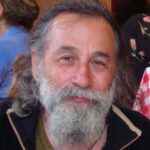 (Editor's Note: Jean Ascher is the translator of Urantia Bogen, the Danish version of The Urantia Book. He also assists students of the book by translating their articles and secondary works into Danish. Jean is a talented circus artist and uses his creative talents in unique ways to spread the Urantia Book teachings.)
(Editor's Note: Jean Ascher is the translator of Urantia Bogen, the Danish version of The Urantia Book. He also assists students of the book by translating their articles and secondary works into Danish. Jean is a talented circus artist and uses his creative talents in unique ways to spread the Urantia Book teachings.)
My show name is Yman Juran and I was born inside my first real life virtual game, called Second Life (SL) on the 27th of February 2007. I was almost like a newborn babe, had never before played any computer game, and knew absolutely nothing about any game, its ethics, way of function, style, or what I was able to do and experience, but I was soon to learn.
Second Life is a virtual space where imagination, fantasy, fiction, and historic reality can be expressed with beauty, goodness, and intelligence. But before we start the journey into Second Life, into the grid and on the many simulators (sims), the reader needs to know a few basics. A sim is 256 m x 256 m (65,536 m²) of land and total grid size is 2065 km2. You initially join the world by creating yourself as an avatar. Whatever you select to be, you can always change later. An avatar is basically just a living creature, and you can be whatever you like from superhuman, to angel, magician, elf, yourself, robot, mermaid, dragon, beetle, crow, or even animals such as a seadryke or a snail. But be aware that behind each living creature you meet is a living personality sitting behind his or her computer somewhere in the world. You can either chat (type) or talk directly with them, even Skype.
For those readers familiar with 3D designer programs, it is possible within SL to create almost anything. Besides the 3D creativity, which is quite advanced and amazing, there are also particle effects. The best comparison is to say it is like fireworks, (pyrotechnics) but you can shape it into any form such as rings, mist, smoke, steams, clouds and make it do as you like. The SL world contains landscapes, mountains, rivers, hills, underground, trees, and animals (animated), as well as weather and time. And you can activate rain, thunder, fire, snow and other natural effects as well as unnatural ones. You can make water yellow and turn daylight to midnight in an instant. You can, besides walking, also fly, swim, teleport yourself, drive and bicycle. I have participated in Second Life for 14 years and if you are interested in the details, and there are many, please contact me by email by clicking here: Yman Juran
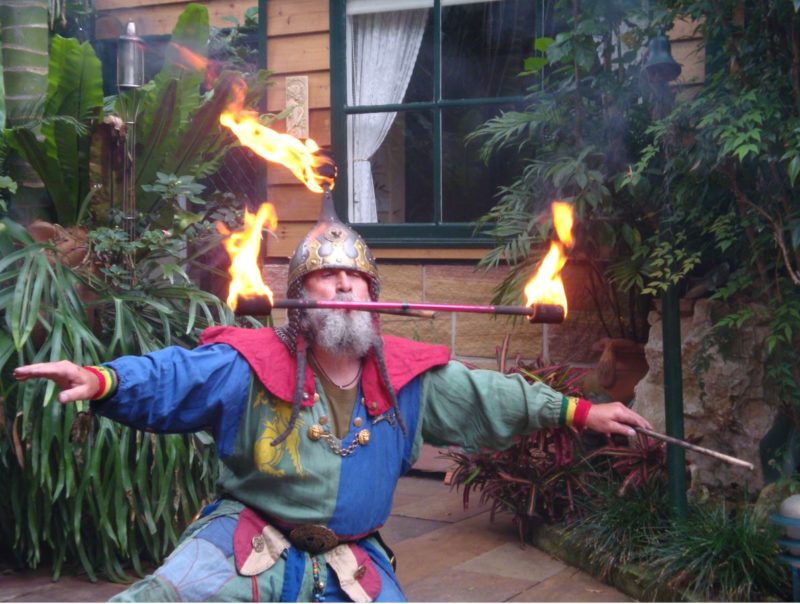 | | Jean Ascher in Sydney 2011 |
In real life, I am a performer and have been traveling with my Danish ChangHigh Circus for 40 years. It is a very special children's circus, where we teach and travel with kids of all ages all over Scandinavia, Europe, and the Middle East.
I joined the virtual world with one purpose: To create a virtual entertainment circus similar to the one I had in reality in action, style, and function. My free home time as of the last few years grew larger just as I grew older and I needed new challenges and when I one day read about Second Life I decided to check it out. "I joined up, flew in and never got out."
 | | Jean Ascher playing flute on unicycle 1982 |
Likewise I had all my life been a notorious book reader, especially interested in philosophy, cosmology, and universal revelations of all kinds so it was natural for me to add various specialized designed spiritual talks into the performance, since what I had decided to create was not going to be an entertainment show only, but rather an “edutainment” and a highly live experience with a message of wisdom, peace, enlightenment, and love which would and could uplift the listeners and the whole culture inside Second Life. I remembered a saying from my younger days which somehow had been lingering within my mind. "What you find missing in this world - create it."
So in short ...I wanted to create a Urantia show which was much more than just a virtual show for fun and enjoyment but a performance which would enrich and elevate the souls and spirits of the ones who happen to be present. I wanted to create a spiritual impression within the minds of the audience which would last beyond long down time... and into the reality of the future.
From the 23rd of June 2007, and until today, 14 years later, we have done nearly 350 shows.
I had made contacts with various DJs and uploaded their songs to the stage program text, so when we walk on stage for a show I have an American DJ, a Portuguese, a Dutch, and a German dancer and myself from Denmark all cooperating together, ready to do one full hour of live performances in synchronization as close as possible to the speed of light making acrobatic animations, fire dancing in rotating trapezes, walking elephants, high-wire and rolling balls all alive, jumping through fire rings with fire pois and sticks in hand and mouth and fire helmets on our heads, spiced with the colors of the spectrum, spinning, exploding, flying, streaming out from us and all around intermixed with various enlightened talks and music interspersing/wrapping the show into a complex fascinating spiritual experience—reaching an audience from all over the world.
Each show is written with text designed and formulated to that particular event, but always will I have my DJ saying:
The Opening...
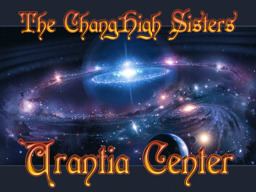 "We welcome all of you to (name of sim)." And, "We welcome you to a performance done in inspiration and appreciation to The Mighty Acts of the Gods—who support humanity in its progressive future of creativity and culture here in SL as well as in reality."
"We welcome all of you to (name of sim)." And, "We welcome you to a performance done in inspiration and appreciation to The Mighty Acts of the Gods—who support humanity in its progressive future of creativity and culture here in SL as well as in reality."
"The show is an attempt to morph true cosmic reality with ultimate virtuality, a morphing of spiritual experience with existential cosmic consciousness."
The high mission of any art is, by its illusions, to foreshadow a higher universe reality, to crystallize the emotions of time into the thought of eternity. [Paper 48:7.23, page 557.7]
“With this saying in mind...Please turn yourself on to a Universe of Light, Life and Love... and let us share our joy in a forever immortal conquest for truth, goodness, and beauty."
“Because truly ‘Life is the ultimate gift of love’...so keep your faith in the creativity of the Gods. They created you and all within the universes of universe.”
Later in the show...
“The Spirit in me greets the Spirit in you all and I invite you to dance as Solace lights up this magical event."
"We are gathered here tonight to celebrate you the magnificent people of Sanctuary....the residents and citizens from Second Life."
"A true documentation of mortal and divine creativity and how it can be merged into higher perceptions of cosmic reality."
"A virtual space where imagination, fantasy, fiction and historic reality can be expressed with beauty, goodness, and intelligence."
"A universe where human potentials and the highest and most advanced technology can be utilized for the benefit of mankind and its future."
"We, The ChangHigh Trinity Sisters and I, would like to encourage each of you to work for the sister- and brotherhood of man as a goal wherever your work takes you."
"Because Life, in whatever form, shape, kind, or style, is the ultimate gift of Love.”
Still later…
“We are all children of the Most High, no matter if we consciously or unconsciously know this, and no matter what faith, belief or understanding we have accepted as true within our lives.... we are all given immortality as a birthday present from the moment when we consciously choose to live this life as it is given to us, and we all have the choice to either accept this life or deny it. We can either walk forward or backward. We can choose by our free will to live in the Light of Love or walk in its shadow."
"So we, the ChangHigh Trinity Sisters, like to encourage each of you to give from your heart, mind, soul, spirit, and personality... give Life the best you can."
"Because Life is the ultimate gift of Love.”
Later again inside the show...
“Keep in mind my kings and queens, brothers and sisters, friends and fellow beings ...to nurture the thoughts in your spirit, soul, and personality. That....
All humankind is one vast family and this world our home. We sleep beneath one roof—the starry sky."
"We warm ourselves before one hearth—the blazing sun."
"Upon one floor of earth, we stand and breathe one air and drink one water and walk the night beneath one luminescent moon."
"The children of one God, we are the brothers and sisters of one blood and members in one worldwide Family of God.”
And in the finale...
“May I have the honor to present The ChangHigh Trinity Sisters, Miss Melvin Starbrook, Miss Nikira Naimarc, Miss Kerstin, and Miss Yman Juran."
"We hope you all have enjoyed the legendary sisters and their Show of Life, Light, and Love..."
"We thank you all, and may your journey through the labyrinth of your mortal existence be blessed and filled with Light, Life and Love..."
"My name is Ktahdn Vesuvino, the sisters and your DJ narrator."
"Feel free to roam the universe of Light, Life and Love ...because it is made for you and me."
"The show was held in appreciation to the Universal Creator of the universe of universes who filled it with Light, Life and Love for all of us to share..."
"So take care of it because it is the most precious gift ever given and it is for us to learn and grow within, our walk toward our ultimate destiny as immortal children of the Most High. "
"You have just witnessed a cosmic conceptualization of divine creativity of Light, Life and Love."
"So… see you in the future... and may peace prevail among you all.”
As the DJ says these words, we go to the front of stage, stop, make a back flip into the air and out of sight (actually under the floor), change into white garments like lightening white angels, return up and kneel three times, teleport out, and the show is finished.
__________________________________________________________________________
This is one way of communicating a message so as to stimulate the listener to think or reflect without actually saying anything about the source itself. I find this idea of watering human imagination and fertilizing the mind with new insight is a good way to stimulate people's curiosity, so they feel an urge to take an initiative to investigate the perceptions planted within.
One can plow the furrows of cerebral matter, fertilize the spirit of a being and be watering the growing sprout of a spiritual personality and never know when the fruits will blossom.
One may perhaps never see or directly reap the harvest, but this is insignificant. To be of service is to share and not expect anything in return.
I have created within SL a fully readable version of The Urantia Book for anyone to pick up by a vendor.
The Urantia Book is, as such, one huge fertilizing bomb prepared to initialize the explosion of light, life, and love within anyone who gets hit by it.
YOUTUBE: Second Life 16-year birthday, June 23, 2019.
Also see Urantia Book in Second Life
See you in the future. Feel free to roam the universe of Light, Life and Love... because it is made for you and me.
In closing, I would like to extend an invitation to you, the reader to visit us inside SL.
I can be contacted inside SL as Yman Juran.
https://community.secondlife.com/profile/763178-yman-juran/content/
We wish all of the Urantia community a positive blessing for the upcoming year and hope the power of life, light, and love will be with you as we all walk forward on our progressing path toward perfection.
Yman Juran (aka) Yourantiaman (aka) Jean Ascher
|
|
William Wentworth, Australia 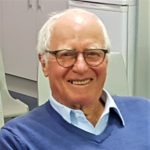 Ken Glasziou was a scientist and student of The Urantia Book who took pains to make his reasoning comprehensible to the general reader. As one of those general readers, I was often interested in what he had to say. Recently my attention was drawn to something he wrote in an article in 2002 entitled “Mathematics and Science Catch up with The Urantia Book,” where he was pointing out the significance of mathematics and some of its limitations as well.
Ken Glasziou was a scientist and student of The Urantia Book who took pains to make his reasoning comprehensible to the general reader. As one of those general readers, I was often interested in what he had to say. Recently my attention was drawn to something he wrote in an article in 2002 entitled “Mathematics and Science Catch up with The Urantia Book,” where he was pointing out the significance of mathematics and some of its limitations as well.
Science develops so rapidly that I don’t really know whether his comments are still relevant, but it led me to think about the application of scientific thinking to cosmology as The Urantia Book explains it.
Scientists have been trying to develop a theory which accounts for everything in the cosmos, both large scale and small, from the largest clusters of galaxies to the smallest particles within atoms. Some of the most accomplished physicists and mathematicians have given themselves to this effort, so far without success, since they restrict themselves to consideration of only a part of the whole of which the cosmos consists.
While they have developed some of the most amazing methods to measure both sub-atomic particles on the one hand, and enormous aggregations of matter on the other, they have not been able to blend them into a unified theory which accounts for all the measurements. There always seems to be something which doesn’t fit.
Because science and mathematics are so intertwined, scientists have been attempting to treat cosmology as if it were an aspect of material science. They think that with enough measurement and mathematical ingenuity, a theory of origin, function and evolution of the material cosmos can be derived which accounts for past, present, and future—and all the unexpected variations of phenomena—within a self-contained mathematical system which is both self-evident and self-explanatory.
They expect to be able to understand and generate life, and they see purpose and destiny as being artifacts of creature whims because they reject teleological notions of development as delusions.
Students of The Urantia Book will see immediately that there are problems with this view. As regards life, the book states bluntly that science will never be able to create it, no matter how much more closely scientists think they approach it. As a Mighty Messenger says:
Subsequent to even still greater progress and further discoveries, after Urantia has advanced immeasurably in comparison with present knowledge, though you should gain control of the energy revolutions of the electrical units of matter to the extent of modifying their physical manifestations—even after all such possible progress, forever will scientists be powerless to create one atom of matter or to originate one flash of energy or ever to add to matter that which we call life. [Paper 42:1.4, page 468.1]
As regards purpose and destiny, the book has quite a bit to say. As a Divine Counselor says:
Even in the study of man’s biologic evolution on Urantia, there are grave objections to the exclusive historic approach to his present-day status and his current problems. The true perspective of any reality problem—human or divine, terrestrial or cosmic—can be had only by the full and unprejudiced study and correlation of three phases of universe reality: origin, history, and destiny. [Paper 19:1.6, page 215.3]
The proper understanding of these three experiential realities affords the basis for a wise estimate of the current status.
But before getting into this, it is important to remind readers that the book does give scientists their due. For the study of purely material phenomena, science has done wonders for us mortals. Not only has it been responsible for the comforts and opportunities of western civilization, but it has, in the process, destroyed much of the superstitious ignorance which impeded cultural development and was responsible for so much human misery in the pre-scientific ages.
With the application of rational intelligence to theology, beginning with thinkers like Thomas Aquinas in the early centuries after the crucifixion, the logic of Aristotle began once again to be studied. The difficulty was always that anything a bit different or unorthodox tended to be classified as heresy, with immediate attempts to snuff it out by almost any means, costing quite a few “heretics” their lives. The only acceptable approach to Christianity and the Church was revelation. But after a while it came to be accepted that there was some rational thought about Christianity and the church which was acceptable. It was thus that it came about that science was born within Christianity.
The subsequent “Enlightenment,” which much later became a rejection of God’s influence over the cosmos and eventually a denial of the very existence of God, constituted a revolution in scientific thought, which The Urantia Book sees as bestowing some benefits that we should not be too quick to discard. Nevertheless, it has deprived science of the insight which would have prevented its self-self-limitation to just the realm of matter/energy.
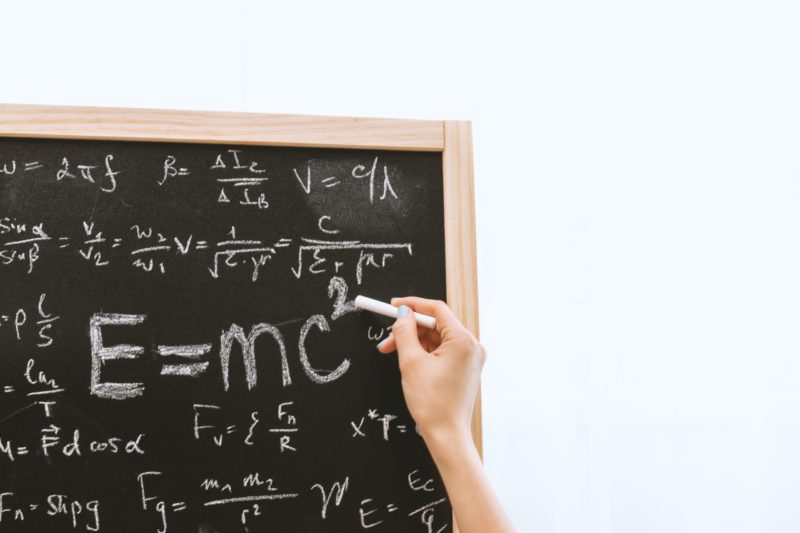 Material science has had its successes in the depiction of matter/energy. This is the realm where rational thought and mathematics are supreme. Theology, superstition, or secularism are not ways to approach the material cosmos. As the Midwayer Commission points out:
Material science has had its successes in the depiction of matter/energy. This is the realm where rational thought and mathematics are supreme. Theology, superstition, or secularism are not ways to approach the material cosmos. As the Midwayer Commission points out:
Secularism can never bring peace to mankind. Nothing can take the place of God in human society. But mark you well! do not be quick to surrender the beneficent gains of the secular revolt from ecclesiastical totalitarianism. Western civilization today enjoys many liberties and satisfactions as a result of the secular revolt. The great mistake of secularism was this: In revolting against the almost total control of life by religious authority, and after attaining the liberation from such ecclesiastical tyranny, the secularists went on to institute a revolt against God himself, sometimes tacitly and sometimes openly. [Paper 195:8.6, page 2081.6]
That said, however, the ambition to develop a unified theory to explain the cosmos by means of the study of its material aspects remains an impossible dream. As The Urantia Book explains, the reality which is assumed by science is actually only a portion of the whole, and even that portion has its origin in a supermaterial reality. The revelators explain that the original situation is one in which there is nothing but pre-God—an infinity which constitutes the potential of God. The revelators point out that this infinity, which they call the I AM, is all that exists. There is no void, or space, or anything at all except I AM, and the I AM self-metamorphoses into everything which can be conceived as real.
As a consequence, there is nothing which is not composed of I AM in some form. All matter, mind, spirit and personality consist of I AMness. Nothing can be excluded because there is nothing else. Everything is composed of some metamorphosis of I AM. And this includes the material cosmos which is assumed by material science. But, of course, it also includes much more than the material cosmos which science assumes to be all that there is. It includes spirit, mind, and personal realities which science ignores.
In asserting this, however, we need to be careful not to fall into the error of pantheism. The metamorphosis of I AM involves a separation of that part which contains the potential of Deity from all the rest. The potential of Deity is referred to as the Deity Absolute, while everything non-deified remains as the Unqualified Absolute, and it is within this Unqualified Absolute that the potential of the material cosmos is contained. The materialistic cosmos thus is not deified, and the mistaken notion of pantheism, that it is part of Deity, must be rejected. The material reality, although derived from the I AM, is not part of Deity. It is a consequence of the action of Deity, but of itself is not deified.
The non-deified potential of the material cosmos is activated by a further metamorphosis in which Deity causes the personal aspects of itself to appear as the Eternal Son, thus establishing the Father as personal, while actualizing Paradise as the controller of the material cosmos. We can thus view the material cosmos as a mechanism, and at first sight this would suggest that the ambition of science to formulate a self-contained unified theory is reasonable. But science is unaware of the fact that the mechanistic controller, Paradise, is itself caused by Deity, and ultimately is responsive to Deity. The Universal Father, acting through the Trinity, could exercise direct control of the functions of Paradise, but he doesn’t need to because Paradise has been so expertly designed that it needs no supervision.
There are aspects of Deity which are not personal. These other realities are the properties of those metamorphoses of I AM which give rise to Deity, and as the revelators explain, Deity contains personality which manifests as God, the Universal Father. Deity propagates spirit through the Eternal Son, who is personalized by God, and also mind through the Infinite Spirit, likewise personalized by God, thus allowing spirit and matter to interact. The fact that these personalizations of Deity are unified in the Trinity in no way lessens the control of God. He could perform the functions of spirit and mind if he chose to but does not need to because the other persons of Deity do it so well that there is no need for him to interfere. As a Universal Censor points out:
The Universal Father, the Eternal Son, and the Infinite Spirit are unique persons; none is a duplicate; each is original; all are united. [Paper 10:2.6, page 110.4]
God is the personality of Deity, but there is still much of Deity which is not personal. There are such things as the presence circuits of the Eternal Son and the Infinite Spirit, spirit and mind gravity, the circuits of the Reflective Spirits, the cosmic mind of the Master Spirits, and no doubt much more. These phenomena are Deity, but not personal, and thus not God the Father.
Destiny is to allow spirit to dominate matter through mind as directed by personality, and from this can be derived some aspects of God’s purpose. But to material science, destiny and purpose are figments of mortal mind. Science recognizes mind but regards it as simply the output of the mortal brain. Certainly, the mortal brain does exhibit some measurable output, but that is only a fraction of its function which science mistakes for the whole. As a consequence, science regards questions of destiny and purpose as purely subjective expressions of mortal minds and dismisses them as teleological delusions.
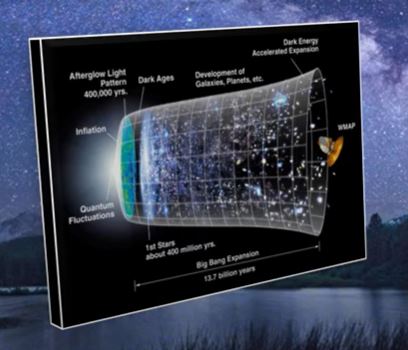 It is clear then, without laboring the point, that reality is a far more complicated phenomenon than that assumed by material science. That being the case, it is hardly surprising that science is unable to formulate a description of reality which covers all their measurements, is self-consistent and contains no teleological assumptions. It seems likely that science will struggle with this until it is prepared to accept that the material cosmos has supermaterial antecedents and consequences which can be approached only by revelatory techniques.
It is clear then, without laboring the point, that reality is a far more complicated phenomenon than that assumed by material science. That being the case, it is hardly surprising that science is unable to formulate a description of reality which covers all their measurements, is self-consistent and contains no teleological assumptions. It seems likely that science will struggle with this until it is prepared to accept that the material cosmos has supermaterial antecedents and consequences which can be approached only by revelatory techniques.
It took many centuries for the reverse to happen—that is for revelatory techniques to be prepared to accept reason as a legitimate approach to reality. Will it take as long for reasoning to accept revelatory techniques as a legitimate approach to scientific reality?
|
|
Claude Flibotte, Canada 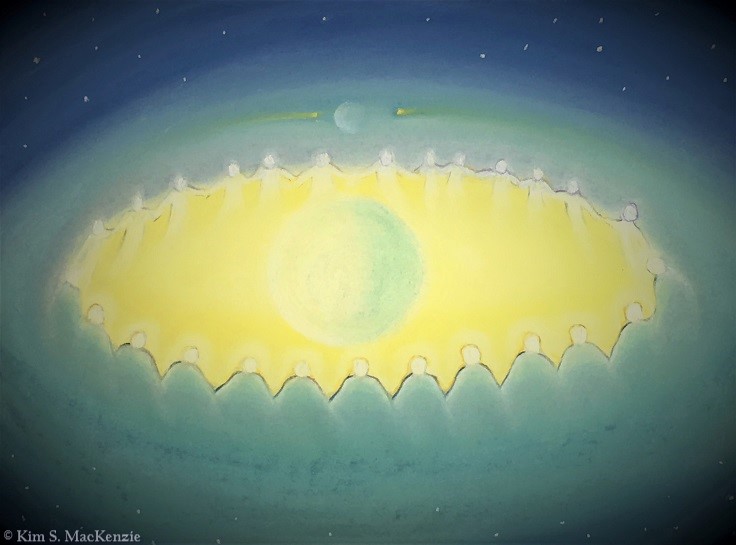 My reflection began during a reading of the magazine Science & Vie published August 2021 where there was a photograph of the center of our galaxy in the direction of the constellation of Sagittarius taken, initially, by the Chandra satellite of NASA equipped with an X-ray telescope. Then, Daniel Wong, astronomer, superimposed another picture of the same region in radio waves taken by the South African radio telescope MeerKAT. The combination of the two wavelengths gives a glimpse of the high energy phenomena that prevail there. We can distinguish gigantic magnetic bridges distributing their energy from the galactic center to the other regions of the Milky Way. All this reminded me of the work of the Supreme Power Centers described in Paper 29 of The Urantia Book.
My reflection began during a reading of the magazine Science & Vie published August 2021 where there was a photograph of the center of our galaxy in the direction of the constellation of Sagittarius taken, initially, by the Chandra satellite of NASA equipped with an X-ray telescope. Then, Daniel Wong, astronomer, superimposed another picture of the same region in radio waves taken by the South African radio telescope MeerKAT. The combination of the two wavelengths gives a glimpse of the high energy phenomena that prevail there. We can distinguish gigantic magnetic bridges distributing their energy from the galactic center to the other regions of the Milky Way. All this reminded me of the work of the Supreme Power Centers described in Paper 29 of The Urantia Book.
Energy in all this!
God is not only spirit, he is also energy. It is precisely this image of the center of our galaxy that inspired me to see more clearly the role of the Universe Power Directors, principally their descendants who are active in the universes of time and space, the Supreme Power Centers of the grand universe. They operate in seven groups mentally controlling the whole vast network of functions performed by the Master Physical Controllers and the Morontia Power Supervisors [29:2].
Since the creation of the universes of time and space, the Havona Centers, the second group of the Supreme Power Centers, are now required there, since this event has precipitated Havona into its second age. For the time being, and only in Havona, there is perfect energy control [29:2.12].
On each of the capitals of the seven superuniverses, including Uversa, the capital of our superuniverse Orvonton, there are one thousand Superuniverse Centers, the third group. Three primary energy streams, each of which is subdivided into ten segregations, enter these centers of power, and seven specialized and well-directed, though imperfectly controlled, circuits of power emerge from their seat of unified action. This is the electronic organization of universe power [29:2.13]. These sevenfold circuits of electronic organization reveal a varying sensitivity to local or linear gravity. They are movements of energies directed for specific purposes, analogous to the Gulf Stream, which bathes every superuniverse [29:2.15]. It is these currents of energy I was referring to in the image at the beginning of this text.
Energy, even closer to us
Moving a little closer to our earthly existence, one hundred Local Universe Centers stationed on the headquarters worlds of the local universes operate to reduce and modify in different fashions the seven circuits of power emanating from the headquarters of their superuniverse in order to make them applicable to the services of constellations and systems. In our case, they are stationed on Salvington. They were of great assistance to our Creator Son, Michael of Nebadon, during the final periods of universe organization and energy mobilization. Imagine the space in our universe traversed by a free, undifferentiated movement of energies, and among them energy corridors connecting two power centers or two physical controllers. These individualized energy circuits are useful for interplanetary communications and the like [29:2.16].
Even closer yet
The fifth order of Power Centers, the Constellation Centers, are ten in number and are stationed in each constellation. They are projectors of energy to the one hundred local tributary systems. From these beings, emerge the lines of power for communication, for transportation, and as a power supply for the living creatures that depend on these physical energies [29:2.17]. I would consider in this last statement the midwayers and the nonbreather beings.
What does this have to do with us?
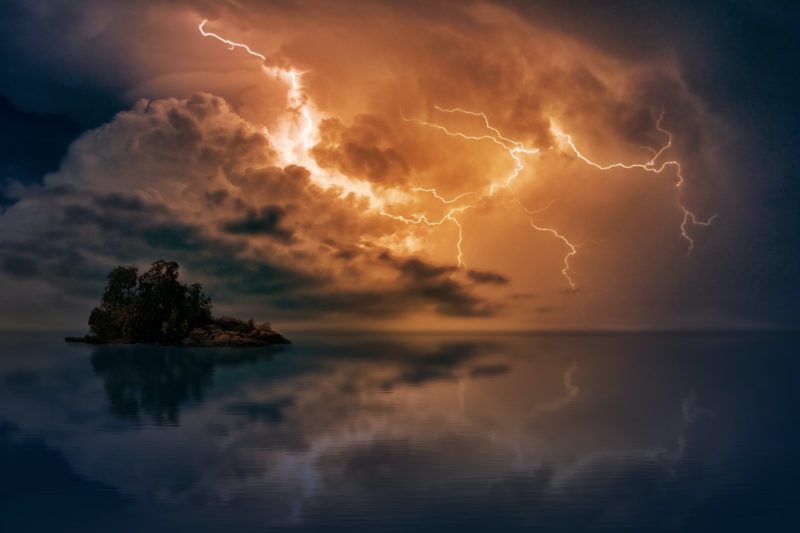 A Supreme Power Center is permanently assigned to each local system. These system centers send the power circuits to the inhabited worlds of time and space. They coordinate the activities of subordinate physical controllers and also act to ensure the satisfactory distribution of power in the local system. The circuit relays between the planets depend on the perfect coordination of certain material energies and the effective regulation of physical power [29:2.18].
A Supreme Power Center is permanently assigned to each local system. These system centers send the power circuits to the inhabited worlds of time and space. They coordinate the activities of subordinate physical controllers and also act to ensure the satisfactory distribution of power in the local system. The circuit relays between the planets depend on the perfect coordination of certain material energies and the effective regulation of physical power [29:2.18].
The individual planets are entrusted to the care of the Master Physical Controllers. They receive the circuited lines of power sent from the power centers of their system. With extremely rare exceptions, an unranked center is assigned to a planet because of quite extraordinary energetic relationships, or this unclassified center acts as a universal balancer or energy governor [29:2.19]. One space body in a million fits this case, and I think Urantia is one of them, since it is located near an extremely powerful energy circuit.
What do the Supreme Power Centers have to do with us? I would answer that without them we would not exist! Since everything is energy, everything that makes up our material world, plants, animals, and our bodies, is made of energy that is transformed into atoms, then into molecules and living cells [42:1.2]. The presence of the Master Physical Controllers is always required when Life Carriers plant life on a planet.
Anatomy of a Supreme Power Center
Power centers use vast mechanisms and coordination of a material order in connection with the living mechanisms of the various separate energy concentrations. Each individual power center is composed of exactly one million functional control units, and these energy-modifying units are not stationary like the vital organs of a physical body; these "vital organs" of power regulation are mobile and truly kaleidoscopic in their possibilities of association [29:3.7].
These beings, as well as the physical controllers of which I shall make mention later, are all created perfect and act perfectly. They never change their function. They are entirely practical in all their actions and are always on duty. They deal only with material or semi-physical energy power. They do not emit it, but modify, manipulate, and direct it. They have the power to resist linear gravity. These supreme power controllers always operate from architectural spheres designed to facilitate their operations [29:3.9]. These beings are closely associated in some way with the cosmic overcontrol of the Supreme Being [29:3.3].
The Master Physical Controllers
 The Master Physical Controllers are perhaps more interesting for us to know about, since they operate on individual planets like ours. They can metamorphose to engage in a variety of autonomous transports. They can cross space at almost the same speed as the Solitary Messengers, that is to say 1,354,458,739,000 km/s, which is no mean feat! However, like all space travelers, they need the help of their companions and certain other types of beings to overcome the gravity of the planet and the resistance of inertia when they start from a material sphere [29:4.1].
The Master Physical Controllers are perhaps more interesting for us to know about, since they operate on individual planets like ours. They can metamorphose to engage in a variety of autonomous transports. They can cross space at almost the same speed as the Solitary Messengers, that is to say 1,354,458,739,000 km/s, which is no mean feat! However, like all space travelers, they need the help of their companions and certain other types of beings to overcome the gravity of the planet and the resistance of inertia when they start from a material sphere [29:4.1].
The Master Physical Controllers are of seven orders. The first three are personal, but the last four seem to act rather automatically, but they are superintelligent [29:4.13]. They adjust the undiscovered fundamental energies on Urantia for interplanetary transportation and communications. These energies are also employed by the midwayers [29:4.14].
Orvonton has three billion Deputy Power Directors, three million per minor sector. In addition to their energetic duties, they serve to instruct all those who study the sciences of energy control and transmutation techniques [29:4.16].
Trillions upon trillions of mechanical controllers are commissioned in Ensa, our minor sector. They are by far the most powerful assigned to an inhabited world. They possess the gift of antigravity, surpassing all other orders of beings. Ten of them were stationed on our sphere at the time of The Urantia Book revelations. Their main function is to facilitate the departure of the seraphic transports allowing them to reach the speed of 899,580 km/s [23:3.2]. To do this, they all act in unison, while a coupled series of a thousand energy transmitters provide the initial momentum for departure [29:4.19]. Together or individually, they act on the energy. To get some idea of their functions, they act like our electrical transformers, switches, amplifiers, electronic transistors, etc.
The Energy Transformers usually number one hundred per inhabited world [29:4.22]. They are the planetary inspectors of seraphic departures as well as powerful, living, decisional switches of action. They can also isolate a planet from the powerful currents of energies passing by.
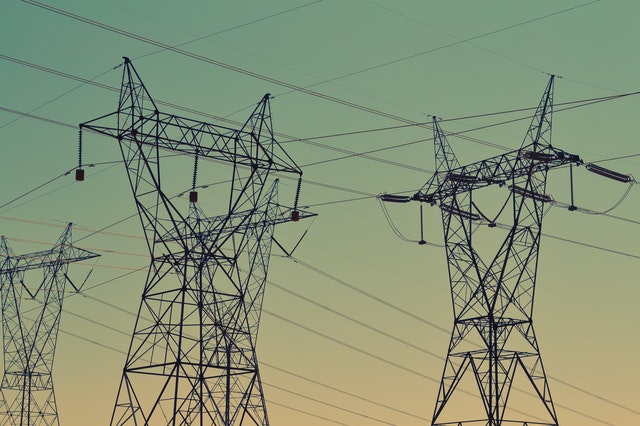 The other four orders of Master Controllers are hardly people as we understand it. Energy Transmitters could be compared to our power lines to direct energy to a new circuit. They place themselves in the desired path, and with their power of energy attraction, they redirect the energy to where it is expected. They can detect a weak current and then amplify it so as to transmit it intelligibly to the broadcast receivers [29:4.29]. They are indispensable, along with the energy transformers, to sustain life on worlds with poor atmospheric conditions, such as those of the nonbreathers [29:4.31].
The other four orders of Master Controllers are hardly people as we understand it. Energy Transmitters could be compared to our power lines to direct energy to a new circuit. They place themselves in the desired path, and with their power of energy attraction, they redirect the energy to where it is expected. They can detect a weak current and then amplify it so as to transmit it intelligibly to the broadcast receivers [29:4.29]. They are indispensable, along with the energy transformers, to sustain life on worlds with poor atmospheric conditions, such as those of the nonbreathers [29:4.31].
The Primary Associators are energy conservers somewhat like the plants that store sunlight. They convert the energies of space into a physical state unknown to us. They are living catalysts capable of transformations to the point of producing some of the primitive units of material existence [29:4.32]. They manipulate atoms, electrons, and ultimatons to express different states of matter. They also release energy at deficit moments.
Secondary Dissociators are the opposite of associators. They are endowed with immense antigravitational faculties and are concerned with the evolution of an energy form little known to us at the time of this revelation (nuclear energy?) [29:4.35].
Frandalanks have the function of automatically recording the status of all forms of force-energy, qualitatively and quantitatively. Chronoldeks are frandalanks which additionally record the presence of time [29:4.37].
Far-fetched ideas or not!
In this study, we see that the pure energy of Deity transmutes into many forms and manifestations, not all of which are recognized by us. Whenever we discover the form of energy mentioned in Paper 42:1.3, while hoping our humanity will have reached a high level of wisdom, we will be able to master the energetic rotation of the electrical units of matter to the point of modifying its physical manifestations [42:1.4]. Imagine the unheard-of possibilities this would represent!
If you search The Urantia Book for the word "physical controllers", you will find no less than one hundred results referring to them. That's how important they are to a planet's economy and how essential they are to our existence! We are familiar with the concept of the Father as the perfect spirit, it would be nice to think of him as the energy, life, and support of his vast creation!

|
|
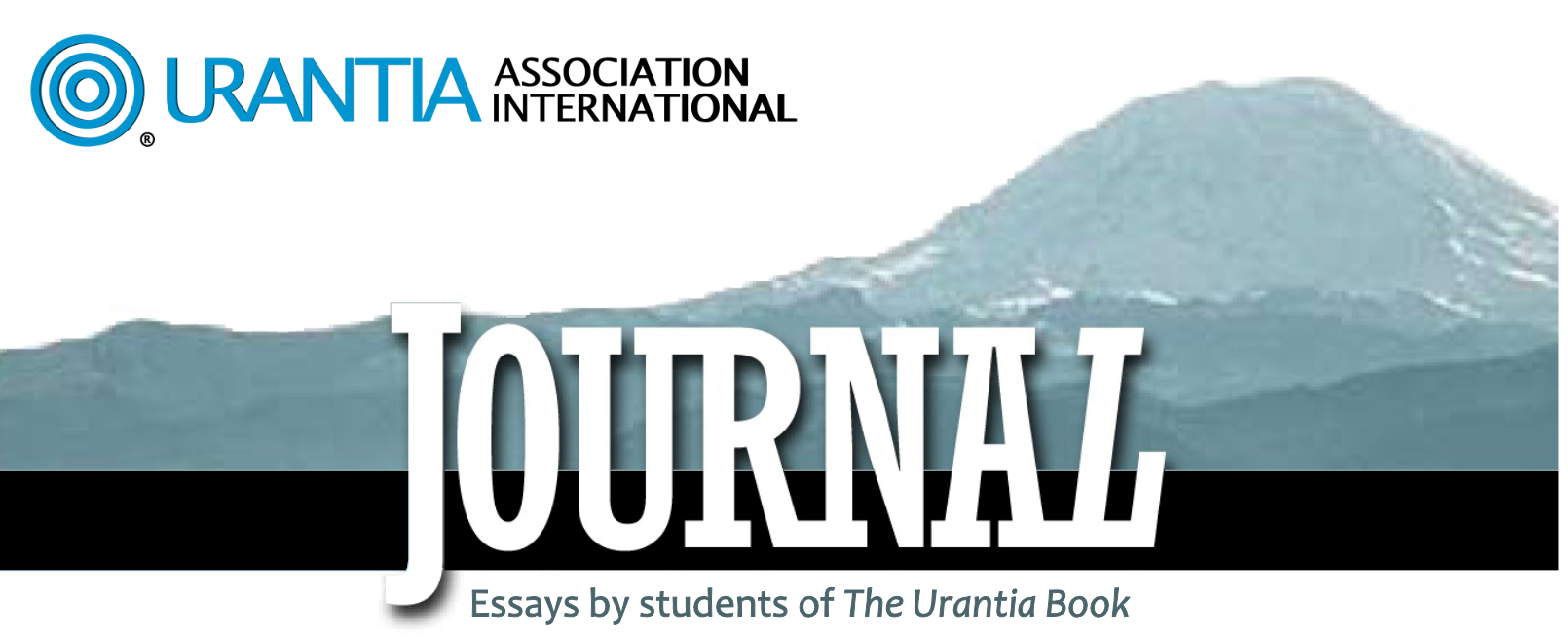
The Journal is produced twice yearly and contains essays, articles and study aids by readers and for readers of The Urantia Book. Any interpretations, opinions, conclusions, or artistic representations, whether stated or implied, are those of the authors and do not necessarily represent the views and opinions of Urantia Association International, the National or Affiliate Urantia Associations, or the editorial team of the Association's Journal.
You can view the entire collection of issues in the archives. All issues before 2017 are downloadable PDF format.
The Journal is currently published in English  , French , French  and Spanish and Spanish  . (There are some older issues that were published in Finnish . (There are some older issues that were published in Finnish  .) You can view the French and Spanish Journals by clicking on the language choices in the pull down menu at the top of the page. .) You can view the French and Spanish Journals by clicking on the language choices in the pull down menu at the top of the page.
Subscriptions
The Journal is available electronically free of charge for anyone with an email address. Join our mailing list to receive free electronic copies.
To receive hard copies, you may subscribe to the Journal at the annual rate of $15.00 USD via any of the following methods:
- To subscribe on line click here
- To subscribe by telephone call: +1-773-572-1180
- To subscribe by check or money order, please send in $U.S. dollars only and make payable to “Urantia Association International”. Mail to:
Urantia Association International
4000 W Montrose Avenue #606
Chicago, IL 60641
Journal Team
- Chief Editor: Richard Jernigan
- Editors: James Woodward, Mark Blackham
- French Newsletter: Alain Cyr and Lucas Perier
- Spanish Newsletter: Olga Lopez
- Communications Chair: Myra Hight
Journal team is currently seeking reports and submissions from all Urantia Book students.
Submission Policy
The Journal editorial team welcomes all article submissions for consideration for current or future issues. Any submissions not used in the current issue are kept on file for potential future use. Urantia Association International does not compensate any author through payment or in any other manner for such voluntary submissions. The Journal editorial team reserves the right to reject or edit materials as it deems necessary for publication and, if edited substantially, will notify the author for their approval.
Send correspondence or article submissions to the above Chicago address or email the Chief Editor, Richard Jernigan.
Images
All contributors — if you submit images, you must either have the rights to those images or they must be in the public domain. In all cases, please include the appropriate credits.
Journal includes images from Pixabay and Unsplash. Many thanks to these companies and their artists for the wonderful service they provide. Image credits are assigned when available.
Citation Guidelines
Please follow our citation guidelines when quoting from The Urantia Book. These guidelines were revised in April 2023, including different citation styles.
Block Quotes
Block quotes are displayed as a separate paragraph, which can be a complete paragraph from the book or any portion thereof. They do not require quotation marks. Block quotes use the citation format shown below, where the first set of numbers refers to paper, section, and paragraph, and the second set refers to the page and paragraph of the editions of The Urantia Book as published by Urantia Foundation. Please note the punctuation.
The Universal Father is the God of all creation, the First Source and Center of all things and beings. First think of God as a creator, then as a controller, and lastly as an infinite upholder. 1:0.1 (21.1)
If you wish to emphasize words that are not already emphasized in The Urantia Book, add “emphasis added” at the end of the page reference.
First think of God as a creator, then as a controller, and lastly as an infinite upholder. 1:0.1 (21.1) emphasis added
Run-in or In-line Quotes
Run-in quotes form an integral part of your own paragraph. Put these quotes within quotation marks (no italics). They require only a short form citation including paper, section, and paragraph. Notice that the citation is included as a part of the quote with the period (full stop) following the quote. For example:
The Urantia Book starts out with a positive assumption, "The Universal Father is the God of all creation” (1:0.1).
Any run-in quote exceeding four lines should be separated out as a block quote. And similar to block quotes, any emphasis added to a run-in quote requires adding "emphasis added" to the citation.
Paraphrasing
If you paraphrase a quote, or derive information from any paragraph, use the same run-in quotation style.
The Universal Father is portrayed in The Urantia Book as a creator, controller and upholder (1:0.1).
References to other works
If you use quotes from, or make references to, other works, please include a citation in order to avoid plagiarism.
In these cases, mention Author, Title, and Year, either in the text or immediately following a quote. Alternatively, include the citation as a numbered footnote.
Size of Submissions
Please limit the size of your submission to 4,000 words or less. We encourage you to use your own words as much as possible and to avoid overusing quotes from the book. Direct quotations are more effective if they are used sparingly and for emphasis.
We always welcome articles about personal spiritual experiences as well as those with fresh insights and new perspectives. Also of interest are thematic studies and articles that compare, evaluate, or integrate academic research (scientific, social, religious, or otherwise) with the teachings of The Urantia Book.
|
 | | Artist: Carlos Rubinsky |
The world is changing fast and Urantia Association International is in a unique position to foster the Urantia revelation in so many ways. With localized teams in the form of associations springing up across the globe, we are ready to help anyone, anywhere, to study and spread the teachings that we all hold so dear.
The Association has only one paid staff member to manage and coordinate our worldwide activities. All other services are rendered by devoted students who donate their time (and often their treasure) to the projects that help bring us closer to our heavenly Father. Thank you to our faithful volunteers and donors!
Here is a selection of ways to donate to Urantia Association:
Online by Credit Card
Visit our website to access our secure online donation form at: https://urantia-association.org/donate
Unrestricted Giving: Choose General Fund on the online donation form for unrestricted donations that can be used for any purpose, including all administrative costs.
Restricted Giving: Choose one of the Program Funds on the online donation form for restricted donations. Your contribution will be used only for the purpose of that fund. (More details on the Program funds can be found at: https://urantia-association.org/program-funds.)
Check or Money Order
Send your contribution through the mail service to:
Urantia Association International
4000 W. Montrose Ave. #606
Chicago, IL 60641 USA
By Telephone or Email:
Phone: +1-773-572-1180
Email: centraloffice@urantia-association.org
Planned Giving
Many different forms of donations and gifts are possible. Urantia Association’s IRS 501(c) (3) tax exempt status allows us to accept gifts that can also serve the financial interests of generous supporters. All direct contributions in all forms may be claimed as tax-deductible charitable contributions on United States Tax Returns. Certain gift forms, such as highly appreciated properties, stocks, or taxable IRAs can also help the donor reduce tax liability while also providing an income tax deduction.
Click here to read more about Planned Giving and to view our Gift Maker’s Guide. The gift forms and strategies described in this guide are well documented and have been used for many years by millions of donors to support thousands of charities, institutions, and non-profit organizations.
In November of 2019 Bradly Tharp, Urantia Association’s Chief Financial Officer (who is also a Certified Financial Planning Practitioner and Chartered Financial Accountant) presented an online seminar on Planned Giving Strategies. Click this link to view the seminar: Planned Giving Strategies Seminar
|
|
